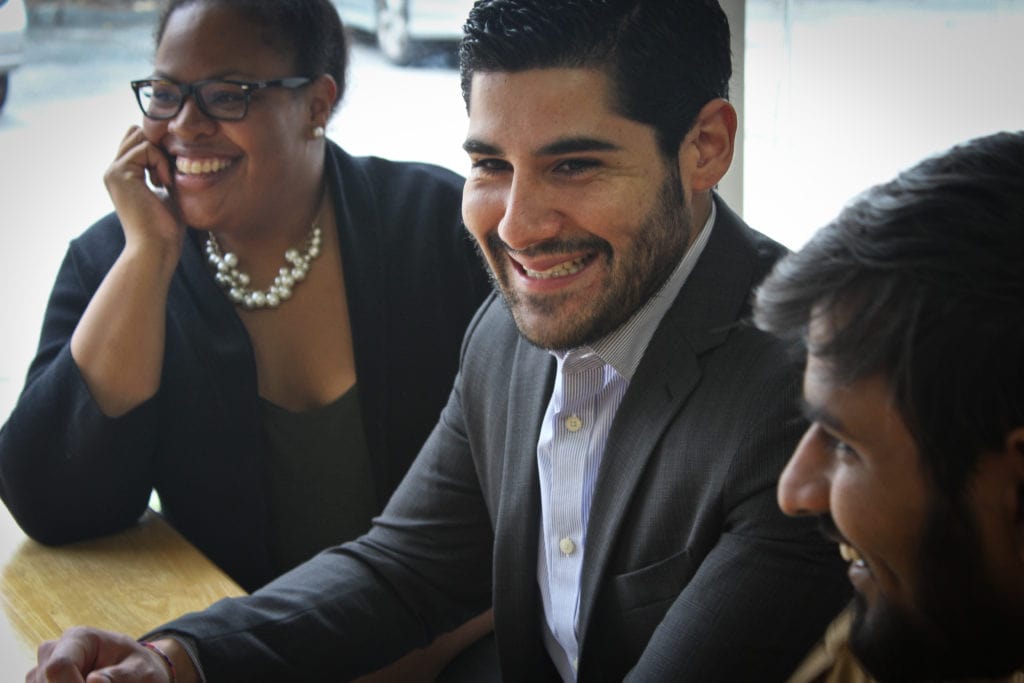SOFIA UNIVERSITY HOSTS GROUNDBREAKING GLOBAL CONFERENCE ON ADVANCING MENTAL HEALTH
COSTA MESA, CALIFORNIA, AUGUST 18-20, 2023 — In the first-ever international conference of its kind, leading researchers and scholars in the fields of psychology, medicine, anthropology, and related fields gathered from around the world to address pressing questions of global mental health and wellbeing.
Co-located in the United States and China, the conference organizers built on lessons learned from the COVID-19 pandemic to create a virtual setting that allowed preeminent researchers from around the world to present and discuss research in a multidisciplinary dialogue in a gathering of more than 1,000 mental health practitioners and researchers in the US, China, Europe, Russia, Africa, and a variety of other locales.
With rates of anxiety, depression, and burnout on the rise globally since the start of the COVID-19 pandemic, recognition of the need for integral mental healthcare has never been greater. Integral and transpersonal therapies address these urgent health trends through a whole-person approach to wellbeing that addresses mind, body, and spirit. Over the course of this three-day scientific conference, researchers addressed mental health across four themes: Whole Person Education and Research, Transpersonal Psychotherapy and Healing, Post-Pandemic Narratives and Resiliency Building, and Transpersonal Values for Growth and Transformation.
“As we emerge from a post-pandemic global depression, I’ve often aligned myself with James Hillman and his belief that depression opens the door to beauty of some kind,” said Sofia University President Dr. Carol Humphreys in her welcome speech. “For me, it rings truer today than ever. There remains a need for deep beauty and transformation in the field of mental health.”
The concept of transformation is central to the field of transpersonal psychology, both personal transformation within the individual and a broader transformation of society in general and the field of mental health in particular. Building on the work of Abraham Maslow, creator of the now-famous Hierarchy of Needs, transpersonal psychologists study the nature of consciousness, the relationship of the individual to the environment, and the interplay between the physical self, the mind, and what Maslow called “the further reaches of human nature.”
“We don’t see things as they are,” said neuroscientist Dr. Anil Seth in his opening keynote from Brighton, England. “We see them as we are.” Dr. Seth’s internationally administered Perception Consensus project, which produced findings shared in his keynote, demonstrates that human perception is more like a controlled hallucination than a direct
experience of reality. This insight holds important implications for the way mental health practitioners understand human consciousness.
Further presentations and panels throughout the event examined the mounting evidence that, just as perception itself is a set of interior processes, an individual’s inner life, their spiritual impulses and deeply felt sense of connection to the universe or the divine, plays a very real role in mental health and overall wellbeing that has only recently begun to receive attention in mainstream science.
“We are familiar with these experiences in the domain of psychosis,” said Stanford University anthropologist Dr. Tanya Luhrmann presenting her research into the phenomenology of inner voices. “But these experiences are also pretty common in the general population.”
“These experiences can feel like they’re kinda weird to people who haven’t thought about them much. But they really matter.”
Putting the mental health impacts of the pandemic in perspective, Dr. Caifang Zhu, Doctorate Program Chair for Transpersonal Psychology at Sofia University, led a panel of experts including Dr. Jun Tong, Dr. Marilyn Schlitz, and Dr. Robert Wood.
“There’s an opportunity to find ways to strengthen individual and social resilience in the light of potential future pandemics,” said Dr. Schlitz. “Resilience was considered from an integral perspective that shines light on both the past and future of pandemics.”
Dr. Robert Wood, Chair of Transpersonal Studies at Sofia University, said, “When we move beyond the confines of the ego and connect with a larger sense of self in the universe, we often discover a deeper sense of meaning which has been linked to increased resilience and improvement of mental wellbeing.”
As the innovative findings of transpersonal research have received growing attention both from mainstream psychology and an increasingly aware public, transpersonal psychology needs to think bigger, said Dr. Glenn Hartelius, Director of Attention Strategies Institute and Editor of the International Journal of Transpersonal Studies. Dr. Hartelius noted “transpersonal was actually the first area of psychology to consider the beneficial effects of psychedelics, the potential value of eastern spiritual practices, like meditation and yoga, and the first to study spirituality as a human capacity, something different than religion,” and called for greater emphasis on quantitative and empirical studies aimed at these subjects within the field.
As the three-day meeting of the minds drew to a close, Dr. Fred Luskin of the Stanford Forgiveness Project gave a stirring talk about the measurable therapeutic effects of exercising forgiveness in our lives, which was built upon by a multi-disciplinary panel led by Dr. Dorote Lucci of Sofia University. The panel, consisting of Dr. Vladimir Maykov, Dr. David Lipschitz, therapist Ruti Wagaki, and Dr. Dale Gooden, examined the practical therapeutic value of transpersonal principles such as forgiveness, gratitude, sacredness, and positive emotional expression.
Concluding with an 8-member symposium of doctors in the field, the Global Conference on Advancing Mental Health looked to the future of psychology.
“Now that we can ground introspection with advances in technology, such as FMRI and other advanced imaging techniques, this field is blossoming,” said Dr. Benjamin Lovett.
“Looking at all of the traditions and gleaning from what they offer, but from a more scientific, rational, and empirical perspective,” said Dr. Harris Friedman. “This is to me, one of the promises that transpersonal psychology could possibly offer for the future of psychology.
In all, the conference included 36 scientific presentations and panel discussions from more than 60 presenters. Response to the conference was overwhelmingly positive.
“The conference was exciting, because it brought together people with diverse perspectives who usually don’t interact with each other. The discussion was far-reaching and interesting,” said psychologist Dr. Robert Siegler of Columbia University, a participant in the Future of Psychology panel.
Students and professionals alike raved about the unique experience. “It’s exciting and inspiring to experience a conference of this scale specifically focused on transpersonal and integral health,” said Robert Strohmeyer, a graduate student in Transpersonal Psychology at Sofia University. “The pandemic has shown us the power and importance of focusing on integral wellbeing, and this event brings that into the foreground in a meaningful way.”
#####
ABOUT THE GLOBAL CONFERENCE ON ADVANCING MENTAL HEALTH
The first annual Global Conference on Advancing Mental Health was organized by the Talent Exchange and Development Center of the Chinese Academy of Sciences, supported by the Psychological Education Committee of the China Education Strategy Association, and hosted by Sofia University. The event took place at various live venues in China and virtually throughout the globe, with over 1,000 participants attending.
ABOUT SOFIA UNIVERSITY
Sofia University, formerly known as the Institute of Transpersonal Psychology (ITP) and founded in 1975, is a private, WSCUC-accredited institution. Historically, the University’s academic emphasis has been on providing graduate degree programs in Transpersonal Psychology. We define Transpersonal Psychology as the scientific study of the full range of human experience, which includes the pain of trauma and dysfunction on the one hand and heights of creativity, intuition, and peak functioning on the other. The University has since broadened its program offerings and has integrated a transpersonal focus into all its new degree programs and disciplines, including master’s degrees in Business Administration and Computer Science and bachelor’s completion programs in Business Administration and Psychology.








